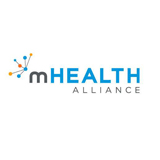
The United Nations (UN) Commission on Life-Saving Commodities for Women and Children (hereafter referred to as the “Commission) was established in 2012 to increase access to and expand the use of 13 life-saving health commodities for women and children in low- and middle-income countries (LMICs) by 2015.
To achieve this goal, the Commission made 10 recommendations, based on research into the barriers impacting the accessibility and adoption of the 13 commodities. Specifically, Recommendation 9 focuses on improving the performance and accountability of Frontline Health Workers (FLHWs), who are often the first point of care in public health systems in LMICs and play an important role in recommending, and sometimes dispensing, life-saving health commodities.
In parallel, the increase in mobile technology penetration in LMICs has catalyzed the development of mobile health (mHealth) tools to strengthen health systems. As a result, the Commission is interested in exploring how mHealth can support the achievement of Recommendation 9, by surveying the existing landscape, identifying gaps and opportunities, and establishing a framework to guide focused development.
This report outlines the findings from a three-pronged approach that includes:
- Establishing a database of existing mHealth tools related to FLHW performance and accountability
- Conducting a literature review on the evidence base of using mHealth tools to improve FLHW performance and accountability
- Developing a framework to guide the adaptation of paper-based content intomobile-friendly content.
The database research yielded 223 entries of approximately 100 unique mHealth tools globally, and the literature review found 66 articles that matched the inclusion criteria for further analysis. In general, the majority of mHealth tools identified were being implemented in India and East Africa and focused on supporting patient monitoring, reinforcing learning, and strengthening counselling efforts during home visits, through pre-loaded java-based applications. Overall, the mHealth tools related to human resource management, including work planning and scheduling, performance management and compensation, were the least commonly identified.